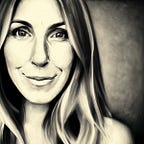The Story of Simon Sotheby
Simon Sotheby was a sickly boy. So delicate and peaked in fact, that right before he began his elementary education, his mother asked the pediatrician how it was that Simon could be so petite and prone to illness, and the doctor said, “It’s simply bad luck, and I have nothing more to add to the matter.”
Of course Simon heard those sentiments, and they rang in his ears every single day of his young life. In the quietness of Sunday morning church service, Simon prayed and pondered, “God, please tell me what I did wrong so I can fix my bad luck.” And in the ruckus of the schoolyard at recess, Simon would quietly whisper to himself, “I must have been a mistake, and there’s nothing more to add to the matter.”
On his 17th birthday, he stood only five feet, one inch tall, despite his mother measuring five foot eight, and his father six two.
For just a moment, however, he took respite from the low lowness he felt about his apparent failure to thrive when he got his driver’s license, until he looked at the laminated card and saw his height in print — that’s when he tucked the license deep into his pocket and hoped he’d never have to show it to anyone ever again.
The girls in Simon’s class eventually took to calling him a “cutie,” which he secretly loved, but it also made him cringe a little. When a girl would have to sit out from physical education because it was her time of the month, Simon was a friend and became a confidant. After all, he hadn’t been allowed to participate in P.E. since running the 50-yard dash gave him bronchitis in the second grade.
Simon’s mother always introduced him like this: “Meet my son Simon. He’s a late bloomer,” and that stung, because Mom seemed so insecure, even unhappy with him, and it only brought more attention to the fact that Simon was extraordinarily small and required a steady diet of vitamins and antibiotics.
And then, in the spring of his senior year of high school, Simon became the sickest he’d ever been. It was mononucleosis, and Simon’s tonsils swelled so much that his breathing became laborious. When he slept, “he moaned like a baby cow,” his mother told the doctor, and with that the pediatrician prescribed a cocktail of pills for Simon — antivirals, antibiotics, steroids and more.
But after his arduous moaning subsided, Simon slept soundly for days on end. Until one sunny morning, he shot up to seated and blurted out: “The illness is the medicine!”
To this day, Simon has no idea why he said that, let alone why he would ever think it. It was a delusional concept that his feverish mind created; an idea that swirled around his dreamland; a crazy, hazy thought.
Looking back, however, it’s fair to say that a most powerful medicine was to be found in his experience of illness. Simon had no choice but to trust in himself on his deathbed. It was truly all he could do to rely on his fragile body in hopes that it might see him through.
So, for an entire month he simply settled into himself. He slept abundantly, drank warm tea, and read his favorite books whenever he could. He moved and shifted in bed when he needed to, and he dozed in and out of consciousness throughout the days and nights. And after thirty whole bedridden days — getting up only to use the bathroom — Simon finally decided to take a bath.
As he lowered himself into the tub basin, he knew right away that something about him had changed. His legs were scrunched to his chest, his arms hung way over the side, and his finger tips grazed the tile floor like they never had before.
When Simon’s worried mother knocked on the door to check in on him, he slowly rose from the tepid water, dressed himself, and walked into the hallway where she stood before him.
With clear, bright eyes, he looked down at her.
And she looked up at him.
Simon had grown almost a foot taller.
